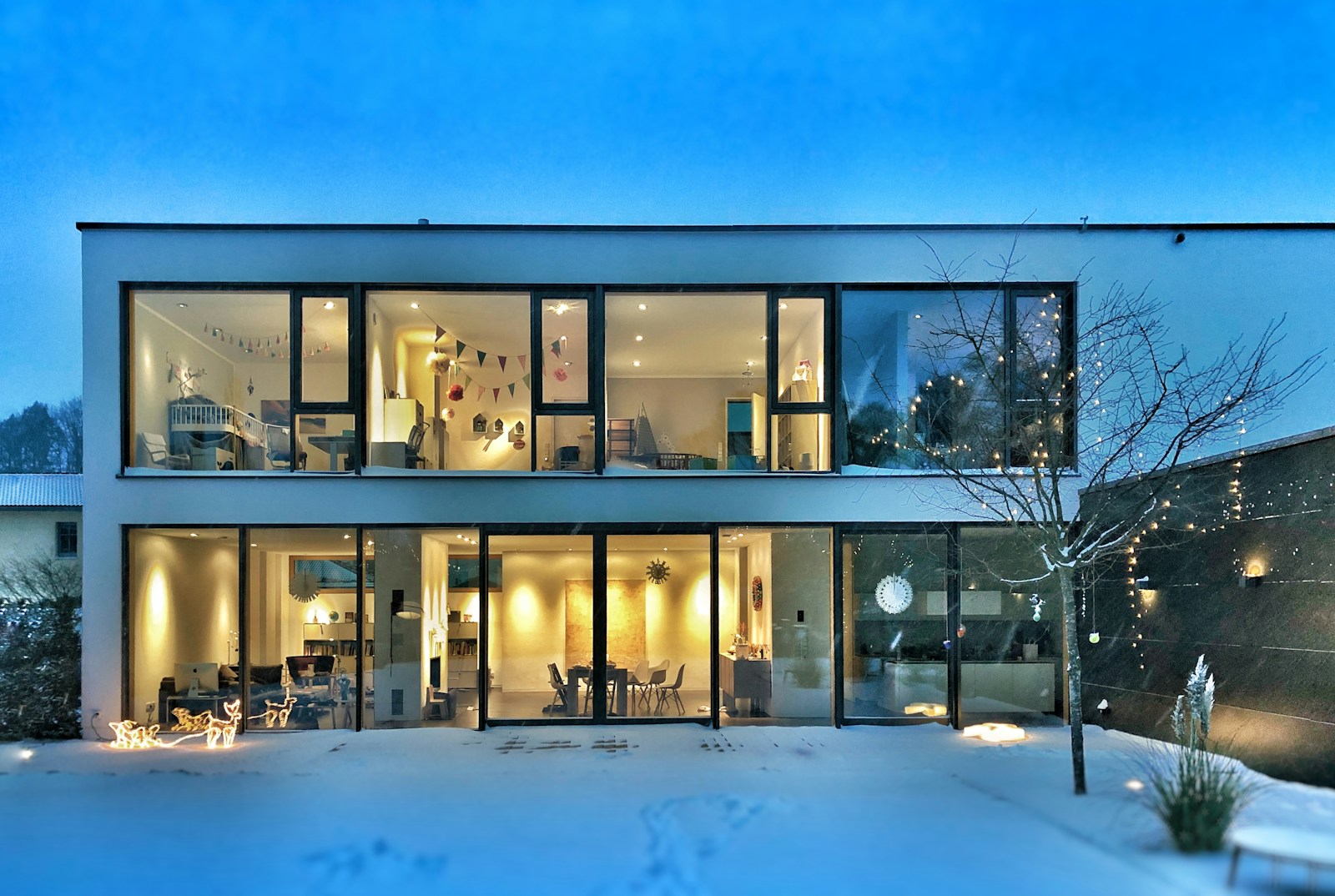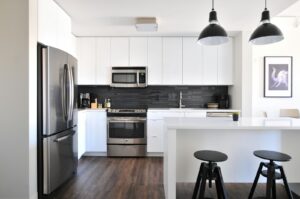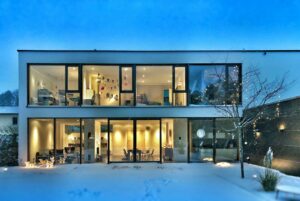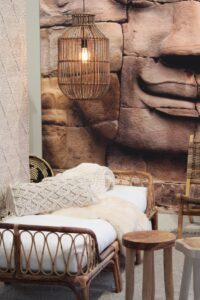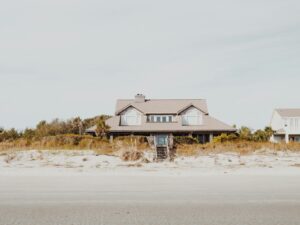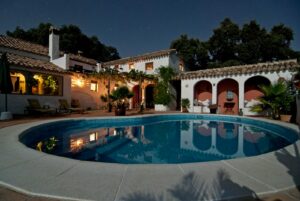TL;DR:
– Modern homes offer energy efficiency, smart home tech, and eco-friendly designs to reduce environmental impact.
– Sustainable materials like eco-flooring and green building practices are integral to modern home construction.
– Innovative designs feature open layouts, natural light, and multi-functional spaces for a futuristic living experience.
– Consider costs, savings, and financing options when building a modern home for long-term benefits.
– Tips include adopting sustainable habits, embracing smart technologies, and seeking inspiration for modern home living.
Introduction
Welcome to the future of living – where innovation meets sustainability in the realm of modern homes. As a seasoned writer immersed in the world of Futuristic Homes and Sustainable Living, I am thrilled to unveil the top ten cutting-edge ideas that redefine the concept of a ‘Modern Home’. From eco-friendly materials to smart technologies, the evolution of sustainable living has never been more exciting. Join me on this journey as we explore how these futuristic homes not only harmonize with nature but also prioritize energy efficiency and environmental consciousness. Let’s dive into a world where luxury seamlessly integrates with sustainability, shaping a future we can all aspire to live in.
Benefits of Modern Homes
Have you ever wondered how modern homes can impact your lifestyle positively? Modern homes offer a range of benefits that cater to the needs of today’s environmentally-conscious homeowners. By integrating smart technologies, enhancing energy efficiency, and reducing environmental impact, modern homes revolutionize the way we live and interact with our living spaces.
Enhancing Energy Efficiency
– Energy-efficient appliances and heating/cooling systems reduce energy consumption, leading to lower utility bills and a smaller carbon footprint.
– Smart thermostats, LED lighting, and solar panels are key features that optimize energy usage and promote sustainability.
Integration of Smart Home Technologies
– Automated systems controlled via smart devices allow for efficient management of lighting, security, and climate control.
– Voice-activated assistants and remote monitoring capabilities enhance convenience and promote a connected living experience.
Reduced Environmental Impact
– Sustainable building practices, such as using eco-friendly materials and efficient insulation, contribute to reduced environmental impact.
– By incorporating green technologies and design principles, modern homes pave the way for a more sustainable lifestyle.
Explore how modern homes can transform your living experience with their innovative features and eco-friendly solutions.
Sustainable Materials Used in Modern Homes
In the quest for sustainable living, modern homes are shifting towards eco-friendly materials that reduce environmental impact and enhance energy efficiency. The choice of materials in construction plays a crucial role in creating a truly sustainable home. Let’s explore the key sustainable materials used in modern homes:
Eco-Friendly Flooring Options
– Bamboo: A rapidly renewable resource that is durable and eco-friendly.
– Cork: Harvested without harming the tree, provides a soft and comfortable flooring option.
– Recycled Content Tiles: Made from recycled glass, porcelain, or other materials, reducing waste and energy consumption.
Energy-Efficient Insulation
– Spray Foam Insulation: Provides a high R-value and seals air leaks effectively.
– Cellulose Insulation: Made from recycled paper, reducing heat loss and enhancing energy efficiency.
– Wool Insulation: A natural and biodegradable material that provides excellent thermal performance.
Green Building Practices
– Passive Solar Design: Utilizes the sun’s energy for heating and lighting, reducing the need for artificial heating.
– Rainwater Harvesting Systems: Collect rainwater for irrigation and non-potable uses, conserving water resources.
– Sustainable Wood: Opt for FSC-certified wood sourced from responsibly managed forests to support sustainability.
By incorporating these sustainable materials into modern homes, homeowners can reduce their environmental footprint while enjoying the benefits of energy efficiency and eco-conscious living.
Innovative Design Features in Modern Homes
In the realm of modern homes, innovative design features play a crucial role in creating spaces that cater to sustainability, functionality, and aesthetics. Let’s delve into some key design elements that define the futuristic homes of today.
Open Concept Layouts
– Modern homes often embrace open concept layouts, which promote a sense of spaciousness and connectivity throughout the living areas. By removing unnecessary walls and barriers, these layouts enhance natural light flow and allow for versatile use of space.
Incorporation of Natural Light
– Utilizing natural light as a primary light source is a common design feature in modern homes. Large windows, skylights, and light wells are integrated to maximize daylight harvesting, reduce energy consumption, and create a bright and inviting ambiance.
Multi-Functional Spaces
– A hallmark of modern home design is the creation of multi-functional spaces that adapt to the residents’ needs. From convertible furniture to flexible room configurations, these innovative solutions maximize the utility of living areas while optimizing square footage efficiently.
By implementing these innovative design features, modern homes not only offer a sustainable and energy-efficient living environment but also enhance the quality of life for their occupants.
Cost Considerations of Building a Modern Home
When planning to build a modern home, it’s critical to consider the array of potential costs. While initial investments may be higher due to the use of advanced materials, technologies, and design elements, the long-term savings offered by energy efficiency and sustainable living can be significant.
Initial Investment vs. Long-Term Savings
The initial costs associated with building a modern home can be higher than traditional housing due to the use of novel materials and technologies. Nevertheless, modern homes are often more energy-efficient, potentially leading to substantial long-term savings on utilities. Moreover, the use of durable, sustainability-sourced materials can result in lesser maintenance costs.
Financing Options for Sustainable Home Building
A variety of financing options are available for those looking to build a sustainable modern home. Traditional mortgages, green loans, and government incentives can all help alleviate initial costs. Many banks and lending institutions now offer special rates or terms for structures that meet specific eco-friendly criteria.
Return on Investment
The return on investment for building a modern home can be impressively significant. The combined benefits of energy efficiency, reduced maintenance, and increased home value contribute to a robust return. Plus, as the demand for sustainable and modern homes rises, the property’s market value is likely to appreciate.
Tips for Transitioning to a Modern Home Lifestyle
Are you ready to embrace the modern home lifestyle? Transitioning to a modern home comes with its challenges and rewards. Let’s explore some tips to help you make the shift seamlessly.
Incorporating Sustainable Habits
To truly live in a modern home, it’s essential to adopt sustainable habits. Start by reducing your energy consumption, recycling and composting, using eco-friendly products, and opting for renewable energy sources. Small changes can make a big difference in reducing your environmental impact.
Embracing Smart Home Technologies
One of the key features of modern homes is the integration of smart home technologies. Embrace automation and connectivity by investing in smart thermostats, lighting systems, security cameras, and more. These technologies not only enhance your lifestyle but also contribute to energy efficiency and cost savings.
Finding Inspiration for Modern Home Design
When transitioning to a modern home, finding inspiration for design is crucial. Explore online resources, visit design exhibitions, and consult with architects and designers to gather ideas for modern and sustainable living spaces. Incorporate elements like natural light, open layouts, and eco-friendly materials to create a truly futuristic home.
Transition smoothly into the modern home lifestyle by incorporating sustainable habits, embracing smart home technologies, and seeking inspiration for innovative design. By following these tips, you can create a space that is not only stylish and functional but also environmentally friendly and future-proof.
Conclusion:
In the realm of sustainable living, the modern home is no longer just a dwelling; it’s a harmonious fusion of technology and nature. From energy-efficient designs to smart appliances, this article has showcased 10 futuristic ideas that propel homes towards eco-consciousness. Embracing a modern home lifestyle is not only a trend but a responsibility to our planet. Explore the possibilities of Modern Home living and unlock the potential for a greener future. Dive deeper into our Modern Home collection and shape your sustainable journey today!

